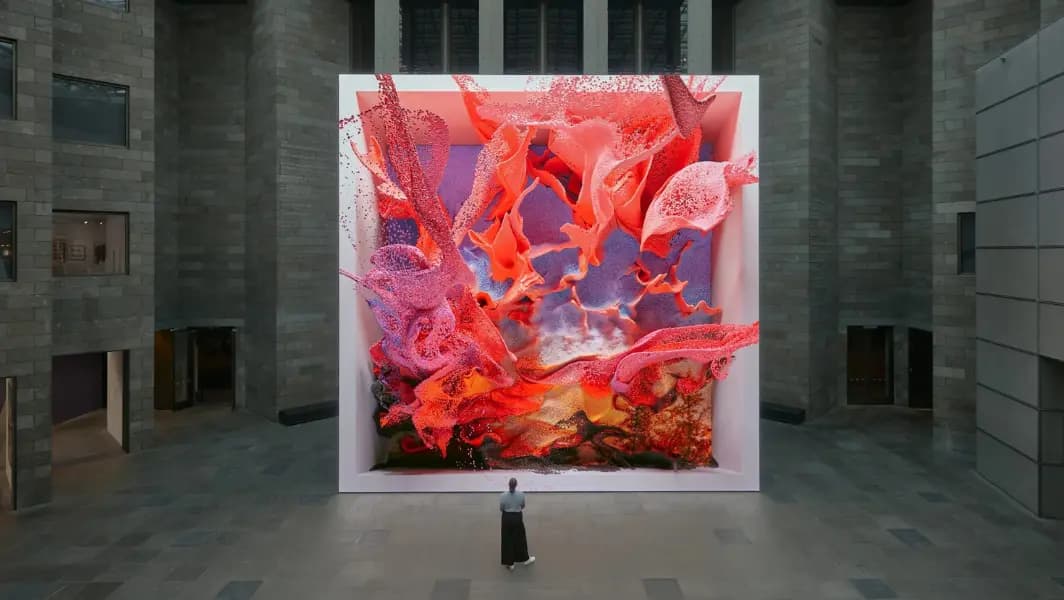
US Appeals Court Rules AI-Generated Art Cannot Be Copyrighted Without Human Input
Court Upholds Decision Rejecting Copyright for AI-Created Works
In a landmark decision, a federal appeals court in Washington, D.C., ruled that artificial intelligence (AI)-generated art created without human involvement cannot be granted copyright protection under U.S. law. This decision reinforces the stance that only works created by human authors are eligible for copyright protection.
The Case: AI System "DABUS" and Its Controversial Artwork
The case revolves around Stephen Thaler, who applied for copyright on a piece of art titled "A Recent Entrance to Paradise," which he claimed was created by his AI system, DABUS. Thaler argued that the sentient AI system independently generated the artwork, and as such, should be entitled to the copyright usually reserved for human creators. However, both the U.S. Copyright Office and the U.S. Court of Appeals for the District of Columbia Circuit disagreed.
The Copyright Office rejected Thaler’s application in 2022, asserting that copyright law requires a human author for works to be protected. This decision was later upheld by a federal district court in 2023. The court emphasized that human authorship is a fundamental principle of copyright law, deeply rooted in centuries of legal understanding.
The Court’s Ruling: Human Authorship is Essential
The three-judge panel of the appeals court agreed with the Copyright Office's stance, stating that U.S. copyright law "requires all work to be authored in the first instance by a human being." U.S. Circuit Judge Patricia Millett explained that many provisions of the Copyright Act are predicated on the assumption that the author is human. Therefore, the court concluded that works created by AI, with no human intervention in the creative process, cannot be registered for copyright.
This decision marks a significant moment in the ongoing legal discussions surrounding the rapidly growing AI industry and its implications for intellectual property. While the ruling addresses AI-generated artwork, it also sets a precedent for other fields where AI plays a significant role, including music, literature, and design.
Reactions: Disagreement and Potential for Appeal
Despite the ruling, Thaler’s legal team expressed strong disagreement with the decision. Ryan Abbott, Thaler’s attorney, stated that they would continue to challenge the ruling, believing that AI-generated creations should be eligible for copyright protection. Abbott argued that the decision could stifle innovation and investment in emerging technologies.
On the other hand, the Copyright Office welcomed the decision, stating that it "believes the court reached the correct result" in affirming that works must have a human author to be eligible for copyright.
Wider Implications: Navigating the AI and Copyright Landscape
The ruling comes at a time when the AI industry is experiencing rapid growth, with AI systems like Midjourney and DABUS producing creative works that challenge traditional concepts of authorship. Artists who use AI tools to assist in the creation of visual art, music, or literature have also faced rejection of their copyright applications, with the Copyright Office maintaining that human input is a requisite for registration.
This decision brings clarity to a key issue in the intellectual property space but also raises questions about how copyright law will evolve to account for the growing role of AI in creativity. As AI continues to advance and become more capable of generating independent artistic works, the legal framework surrounding ownership and authorship will undoubtedly be a topic of ongoing debate.
Looking Ahead: The Future of Copyright and AI
While the current ruling reaffirms traditional copyright principles, it also highlights the need for further legal discourse on the subject. As AI continues to develop, lawmakers and legal experts may need to revisit the issue of AI authorship and determine whether new laws are needed to accommodate these technological advancements.
The case is expected to fuel further discussion on the relationship between AI and intellectual property law, particularly regarding the rights of creators using AI tools. As the AI industry evolves, so too will the debates over what constitutes authorship in an era where machines can generate creative content independently.
Conclusion
The U.S. Court of Appeals' ruling that AI-generated art cannot be copyrighted unless a human author is involved sets a significant precedent in the intellectual property landscape. While the ruling provides clarity, it also opens the door for ongoing legal challenges and discussions about the future of AI in creativity and copyright law.
For any enquiries or information, contact info@thelawreporters.com or call us on +971 52 644 3004. Follow The Law Reporters on WhatsApp Channels